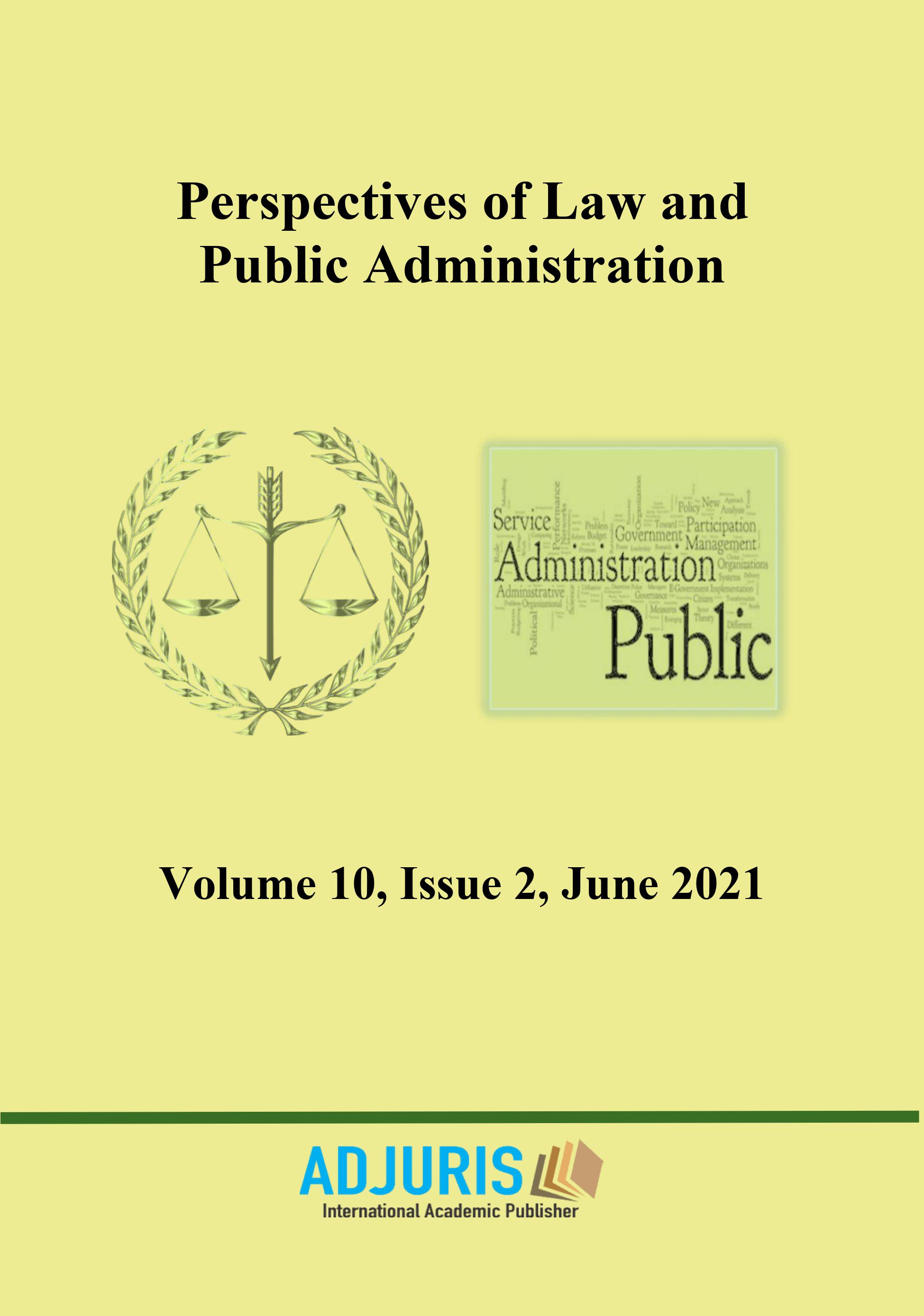CONCURRING WITH THE MINORITY JUDGMENT WHICH FINDS THE MAJORITY JUDGMENT TO BE JUDICIAL OVERREACH TO THE DOCTRINE OF SEPARATION OF POWERS ACCENTUATED IN THE CASE OF ECONOMIC FREEDOM FIGHTERS VS. SPEAKER OF THE NATIONAL ASSEMBLY 2018 (2) SA 571 (CC)
CONCURRING WITH THE MINORITY JUDGMENT WHICH FINDS THE MAJORITY JUDGMENT TO BE JUDICIAL OVERREACH TO THE DOCTRINE OF SEPARATION OF POWERS ACCENTUATED IN THE CASE OF ECONOMIC FREEDOM FIGHTERS VS. SPEAKER OF THE NATIONAL ASSEMBLY 2018 (2) SA 571 (CC)
Author(s): Thabo T. Magabe, Kola O. OdekuSubject(s): Constitutional Law, Law on Economics, Commercial Law
Published by: Societatea de Stiinte Juridice si Administrative
Keywords: separation of powers; judicial overreach; organs of state; checks and balances; South Africa;
Summary/Abstract: The doctrine of separation of powers is recognized by most civilized democratic countries. It was first presented in the Magna Carta. The doctrine dictates that power is divided into three branches of the government namely the executive, legislature, and the judiciary. For the doctrine to be implemented effectively and efficiently, there is a principle of checks and balances wherein each branch has power to exercise oversight on the others to check arbitrariness. The essence of checks and balances is to curtain and curtail any abuse of power by any of the branches. The courts have the power to interpret and apply the law and can even declare any provision of the Constitution or legislation invalid and unconstitutional. The courts wield enormous power to the extent that they have the power to review conduct of the other branches and spheres of the state and declare any of their action or conduct inconsistent with the Constitution. However, while exercising their judicial review powers, the courts too have limits or boundaries. The court cannot usurp the powerof any of the other two organs of government. The only time a court might intervene in other branch is when the organ of the state has acted contrary to the Constitution. This paper accentuates that the majority judgement in the case of “Economic Freedom Fighters v Speaker of the National assembly 2018 (2) SA 571 (CC) (EFF2)” seemed to have encroached into the domain of the legislative arm of the government by not observing the limits of the judiciary in the exercise of judicial powers and therefore violated the doctrine of separation of powers. Against this backdrop, this paper concurs with the minority judgement in the case of EFF2 which held that the judiciary overarched by usurping the power and performing the functions constitutionally reserved for the parliament-the legislature. It concludes that the judiciary overreached and went beyond exercising checks and balances permitted by the Constitution in that the judiciary used its judicial power to dictate to the parliament to exercise its powers in a certain way. Whereas the Constitution reserved this power to the parliament to make its own rules in order to govern its processes.
Journal: Perspectives of Law and Public Administration
- Issue Year: 10/2021
- Issue No: 2
- Page Range: 69-79
- Page Count: 11
- Language: English

